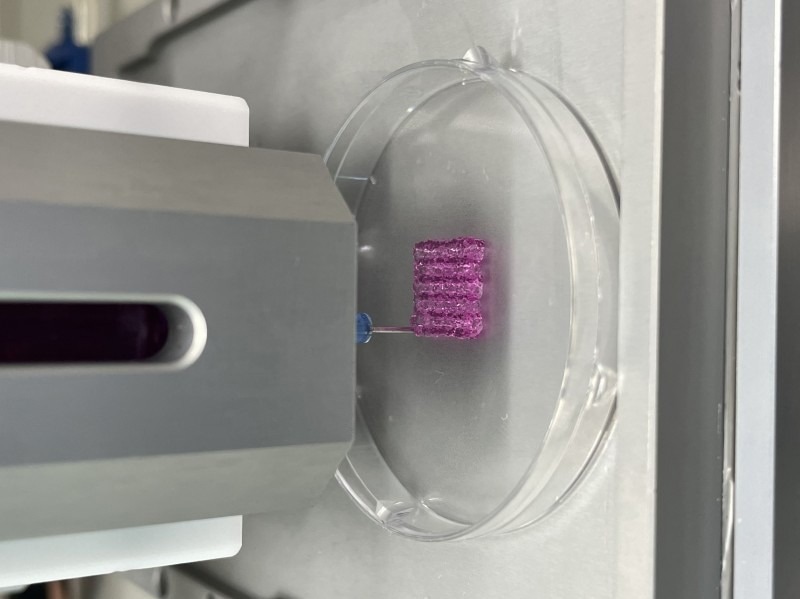For the first time in the world, a three-dimensional (3D) bioprinting technology has the potential to eradicate cancer cells with the use of the immune cells’ function has been developed.
 Image showing the preparation of hydrogels that enhance the viability of NK cells. Image Credit: National Research Council of Science and Technology
Image showing the preparation of hydrogels that enhance the viability of NK cells. Image Credit: National Research Council of Science and Technology
Via joint study with the Korea Institute of Machinery and Materials (President Sang Jin Park, hereinafter mentioned as KIMM), the Korea Research Institute of Bioscience and Biotechnology (President Jang Seong Kim, hereinafter mentioned as KRIBB), institute under the jurisdiction of the Ministry of Science and ICT, built a 3D bioprinting technology. The technology uses natural killer cells (NK cells) as a novel approach to immunotherapy for curing cancer and declared the results of the study in Biomaterials Research.
Enabling the 3D-printed hydrogels to encapsulate NK cells aids in avoiding the loss of NK cells and facilitates most of those cells to home in on the tumor cells. Pores are made in the hydrogel, and NK cells that maintain cell viability are expelled after a specific time period, enabling the functioning of immune functions.
While NK cells are normally employed for immunotherapy, which involves inserting NK cells through intravenous injection has not produced functional outcomes on solid tumors in clinical trials. This is because NK cells do not have the potential to retain an accurate viability level and fail to target solid tumors.
At the same time, with the use of the recently built technology, NK cells can be inserted into the hydrogel, printed, and then cultured in a 3D environment, improving the cell feasibility and movement of NK cells and facilitating those cells to challenge cancer tissues.
This technology can help to significantly improve the functionality of NK cells that are used for cancer treatment. We expect to contribute to the treatment of cancer patients through this newly developed technology.
Principal Researcher Su A Park, Korea Institute of Machinery and Materials
This work was done with the aid of the project for the “Development of multiscale-vasculature-laden skin composite tissue for evaluation of implantable nano-bio-sensors” financed by the Ministry of Science and ICT and the National Research Foundation of Korea, and the project for the “development of UnTACT systems for critical illnesses” performed by the Convergence Research Center of the National Research Council of Science and Technology.
Journal Reference:
Kim, D., et al. (2023) NK cells encapsulated in micro/macropore-forming hydrogels via 3D bioprinting for tumor immunotherapy. Biomaterials Research. https://doi.org/10.1186/s40824-023-00403-9.